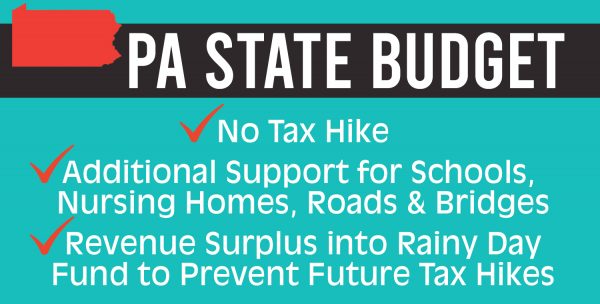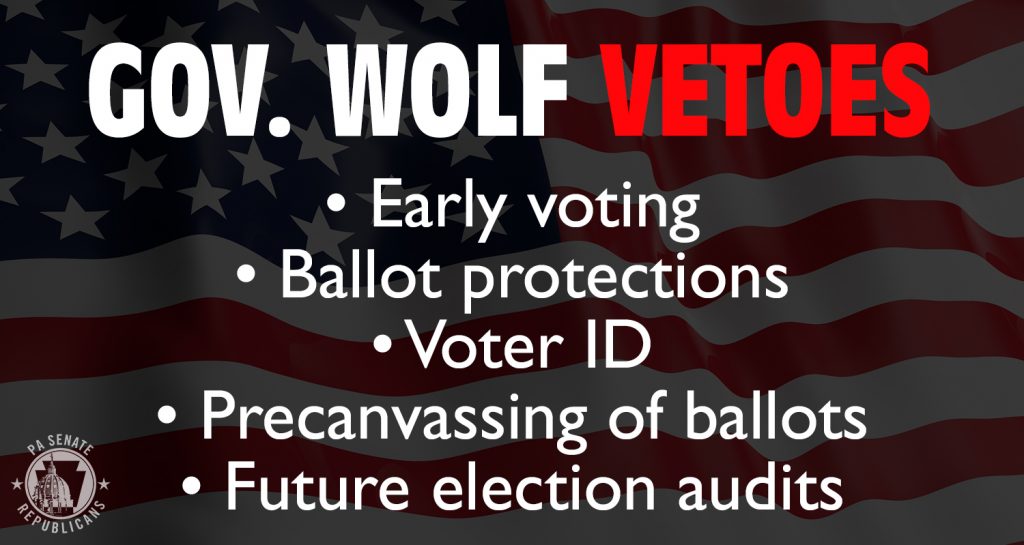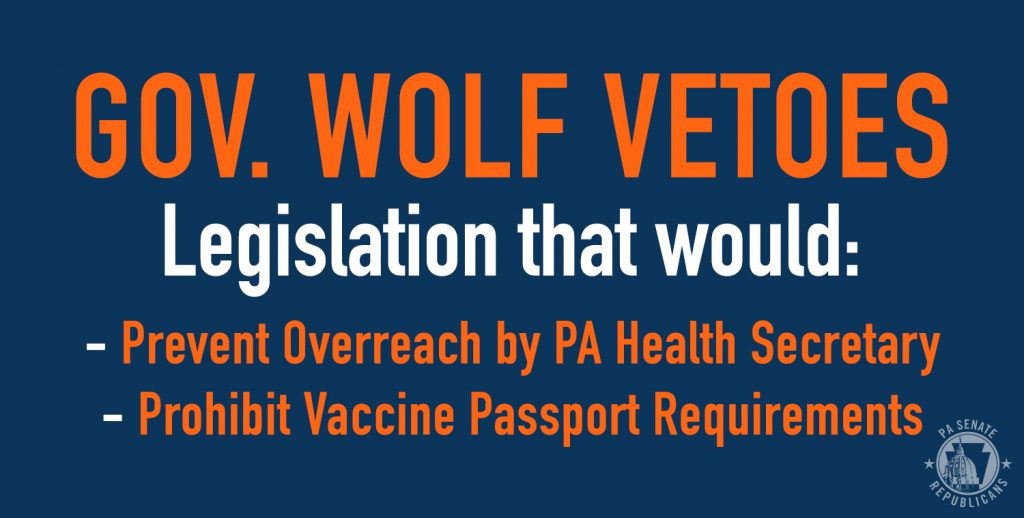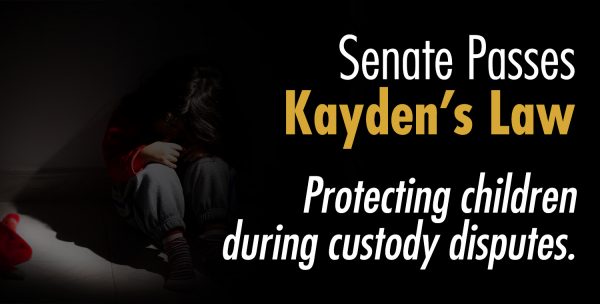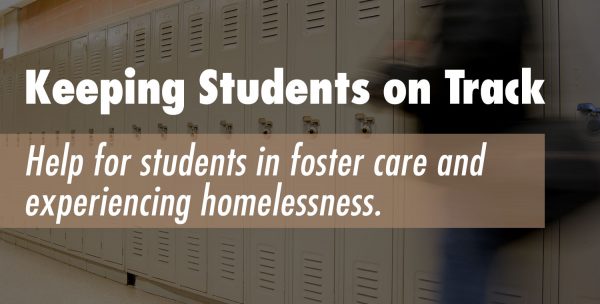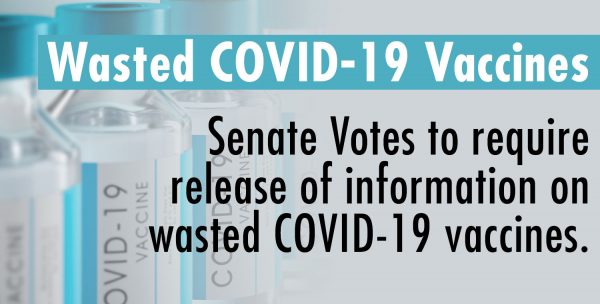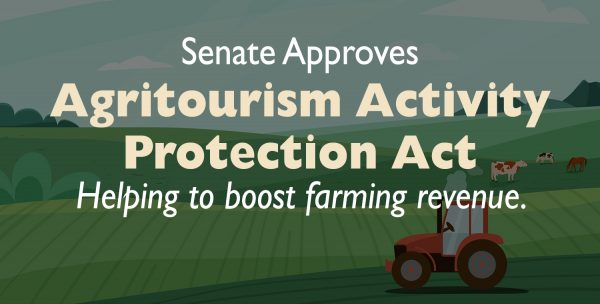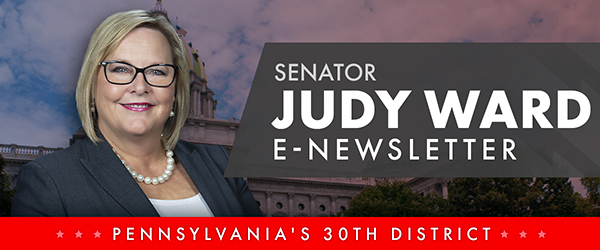
|
|||||
|
In this Update:
General Assembly Approves Budget that Holds the Line on Taxes, Boosts Rainy Day Fund, Supports Schools, Roads and Nursing Homes
I voted for a fiscally responsible 2021-22 state budget that enhanced the state’s commitment to its seniors through an increase in funding for long-term care facilities while putting money aside for the future. As chair of the Senate Aging and Youth Committee I was a vocal proponent of supporting our long-term care community because it illustrates a commitment to the state’s most vulnerable population. During the COVID-19 pandemic, too many decisions were made that did not prioritize this community. Working together we can use this funding to safeguard this group moving forward. The plan was signed into law Wednesday. The budget included $282 million in stimulus money to support long-term care facilities that suffered serious financial challenges during the pandemic. The funding includes:
Again this year, we did not ask families for more of their hard-earned dollars to prop up state spending. Instead we held the line on the governor’s requested increase in taxes and spending while still focusing on the challenges facing nursing homes and long-term care. The fiscally responsible budget does not include any of the tax increases proposed by the governor in February — including a 46% Personal Income Tax hike. While Pennsylvania is on pace to end the current fiscal year with $2.5 billion in surplus revenue, revenue projections for the current fiscal year were made as Pennsylvania was coping with the financial devastation caused by the global pandemic and the governor’s business closure orders. Despite a significant rebound in revenues and the availability of federal stimulus funds to help balance the budget, lawmakers must remain vigilant and pragmatic because Pennsylvania’s mandated spending growth still outpaces its revenue growth and the Commonwealth cannot depend on continued federal funding. The budget provides a three-tier approach to create a strong financial safety net for coming years:
The spending plan includes $300 million more for Basic Education Funding, $50 million more for Special Education, $25 million more for Pre-K programs and $5 million more for Head Start. It also allocates $279 million in federal funding to support highway and bridge improvement projects. This will enable the Commonwealth to address its deteriorating transportation network while supporting employers and creating family sustaining jobs. Governor Vetoes Comprehensive Voter Rights Bill to Transform Election System, Restore Faith
On Wednesday, Governor Wolf vetoed a comprehensive voter rights bill designed to transform our election system and restore public confidence in the outcome of elections. Fortunately my efforts to allow voters to decide if the Pennsylvania Constitution should be amended to require verification for every voter every time they cast a ballot are still on track. The earliest that could be considered by voters would be May 2023. The Voting Rights Protection Act was a wide-ranging plan that expands access, boosts election security and helps counties administer elections in an accurate and more timely manner. The bill will make it easier for Pennsylvanians to vote, but harder to cheat. The bill protected voting access by:
The bill expanded election security by:
The package contained critical reforms requested by counties to help elections run more smoothly. This includes changing voter registration and mail-in ballot deadlines, as well as giving counties more time before Election Day to count mail-in votes. The bill also established a state Bureau of Election Audits that would have been required to conduct ballot comparison audits to compare machine ballots to voter ballots; ballot-polling audits that will select ballots at random for individual review; and performance audits on county and state election systems every five years. The veto by Governor Wolf of the Voter Rights Protection Act is an out-of-touch move that goes against the majority of Pennsylvanians. Governor Vetoes Bill Preventing Vaccine Passports, Limit Government Intrusion
Governor Wolf’s veto of Senate Bill 618 continues a troubling trend of the Wolf Administration refusing to accept any semblance of responsibility for its mishandling of the COVID-19 pandemic. This bill had a very simple purpose – to limit government intrusion into people’s lives. Governor Wolf’s veto is a clear indication that he believes he knows best how to handle everyone else’s personal decisions – despite all evidence to the contrary. Throughout the pandemic, the Wolf Administration has misused the Disease Control and Prevention Act to prevent students from going back to school, shutter employers and order new mandates without the science to back up those decisions. They have continued to pursue restrictions without any sense of accountability or transparency. When it comes to impacting people’s lives in such a profound way, ‘because I said so’ simply isn’t good enough. Just last month, Pennsylvanians voted for stronger checks and balances on the Executive Branch’s authority during times of crisis. There is a clear mandate to limit the governor’s authority, particularly his orders to restrict the travel and activities of healthy people. This bill was a continuation of our efforts to free state residents from the consequences of the governor’s unilateral rule. Pennsylvanians should never again have to deal with the consequences of one branch of government running roughshod over the civil liberties of its citizens. I will continue to work to protect the lives and livelihoods of Pennsylvanians and ensure state residents are not negatively impacted by government overstepping its bounds. Increased Support for Crime Victims Approved by Senate
The Senate approved legislation to improve communications with crime victims and ensure they receive any compensation they are owed. The measure broadens the timeframes victims’ compensation may be sought and expands critical access to compensation. It requires the law enforcement officer responding to or investigating an incident to provide basic information about the rights and services available to crime victims. The effort uses savings generated by the Justice Reinvestment Initiative, launched in 2012, to strengthen public safety and reduce prison and probation costs. The bill was sent to the House of Representatives for consideration. Senate Passes Kayden’s Law to Protect Children during Custody Disputes
The Senate approved and sent to the House of Representatives legislation known as Kayden’s Law to increase protections for children during child custody disputes. The legislation is named after Kayden Mancuso, a 7-year-old Bucks County resident murdered by her biological father in 2018 during a visit ordered by the court, despite evidence of his abusive and violent behavior. The bill imposes safety conditions and restrictions on visitation in cases of abuse, modifies the factors that a judge must consider in making a custody award to put the focus on the health and safety of the child, and recommends better training of all court personnel involved in custody cases. Homeless Students and Students in Foster Care Aided by Senate Measure
Students experiencing homelessness or living in foster care face additional graduation challenges because they changed schools before earning full credit or are unable to take a required course at their new school. Their new school also may not honor the credits they earned. The Senate approved legislation to create a smoother transition to high school graduation for these students by designating a point person to review past transcripts and provide the essential support needed to aid student graduation. The bill would also provide students with other methods to demonstrate that their coursework has been satisfactorily completed so necessary credit can be awarded. The measure was sent to the House of Representatives for consideration. Senate Advances Bill to Increase Vaccine Transparency
The Senate voted to increase the transparency of Pennsylvania’s vaccine rollout by requiring the Department of Health to make public the amount of vaccine doses that have been wasted. The measure addresses the Department of Health’s unwillingness to release details of their pandemic response using a law from 1955. Media organizations across Pennsylvania have expressed their frustration throughout the pandemic with this refusal to publicize information. The bill was sent to the House of Representatives for their consideration. Senate Helps Open Agritourism to More Farmers
Agritourism includes farm markets, pick-your-own produce, corn mazes, paintball, petting zoos, hayrides and farm tours. They can make the difference between having a positive year on the ledger or ending up in the red, especially for small family farmers. The Senate approved the Agritourism Activity Protection Act to create a statewide standard for agritourism and provide limited civil liability protection for persons who offer agritourism activities on a farm and meet requirements. The bill was signed into law and is Act 27, 2021. Have a Happy Independence Day The United States of America remains the world’s beacon of liberty, 245 years after the 13 colonies took the brave step of challenging the British Empire for independence. Open displays of love of country might seem old fashioned to some, but it is found in abundance in the homes and communities of everyday Americans. I hope you have a wonderful 4th of July celebrating our nation’s birthday. |
|||||
|
|||||



Want to change how you receive these emails? 2025 © Senate of Pennsylvania | https://senatorjudyward.com | Privacy Policy |
